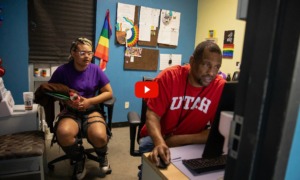Maryland’s experiment with juvenile boot camps ended in failure in 1999, but it took a perfunctory vote by the state’s Board of Public Works last month to bring final justice to dozens of youth who were mistreated at the facilities.
The board’s consent to a court-approved $4.6 million civil settlement underscores how the once-ballyhooed boot camp movement has not produced the results its promoters had suggested when the movement picked up speed in the 1980s. (See “Boot Camps Lose Early Swagger,” November 1999.)
Maryland’s contribution to the decline in boot camp enthusiasm started in 1999, when The (Baltimore) Sun ran a series of stories exposing abuse of youth at the camps. As a result, the state closed its four juvenile camps and several state officials resigned.
Under the lawsuit settlement, a state official said, 11 youths who suffered serious injuries – including broken bones and shattered teeth – will split about $1 million. Another 50 youths with less severe injuries will receive $15,000 each, while a team of 14 attorneys who worked on the case will receive a total of about $700,000.
The agreement also establishes a $2 million scholarship fund to help former inmates enhance their education. About 900 boys who attended the camps, operated from 1996 to 1999, are eligible for the assistance. About 350 former boot camp inmates have applied, said John Coale, a Washington attorney who served as the lead counselor in the case.
“We were surprised the numbers were so high, pleasantly surprised,” he said “From the beginning, we wanted to give the whole group opportunity.”
It is difficult to determine if the number of boot camps has decreased in the past 10 years, as the federal government did not start tracking them until 1997. That year, the government reported 66 boot camps with 4,914 beds. The numbers dropped to 59 camps with 3,471 beds in 1999, then increased to 69 camps with 5,334 beds in 2000, according to information from the U.S. Office of Juvenile Justice and Delinquency Prevention.
“States are still looking at alternatives to incarcerate youth, and boot camps are one alternative that is still being used,” said Joe Weedon, government relations manager for the American Correctional Association in Lanham, Md. “Where they have proven effective, they are still in use.”
Research on the effectiveness of boot camps shows mixed results. An August 2001 report by the U.S. Department of Justice’s National Institute of Justice found that youth in boot camps generally had better attitudes about their facilities than peers in traditional training schools. Many boot camp youth considered their environment friendly and the staff encouraging, the report said.
But boot camp participants also reported feelings of being in danger from camp personnel. The report found that boot camp youth were not prepared to re-enter society as well as were youth in other types of corrections facilities, and did not receive adequate mental health services.
“As a result, it is not surprising that boot camps have not been effective in reducing recidivism,” the report concluded.
Although many boot camps incorporated the expectations, physical and mental vigor, relationship-building and structure needed for successful juvenile justice programs, many also included harmful practices like “the yelling, the screaming, the humiliation, the really, really intense physical exertion,” said Dave Roush, director of the Center for Research and Professional Development of the National Juvenile Detention Association (NJDA).
Many of them also failed to provide treatment for kids with mental health problems or learning disabilities, said Ilona Picou, director of the American Bar Association’s Mid-Atlantic Juvenile Defender Center in Annapolis, Md.
Maryland, however, is not admitting failure or wrong-doing.
“Is it an admission? I don’t think so,” said H. Erle Schafer, a spokesman for the Maryland Department of Juvenile Justice. “It was a settlement of a situation that we ended.”
Contact: Office of Juvenile Justice and Delinquency Prevention, http://ojjdp.ncjrs.org; Center for Research and Professional Development of the National Juvenile Detention Association, http://njda.msu.edu.
























